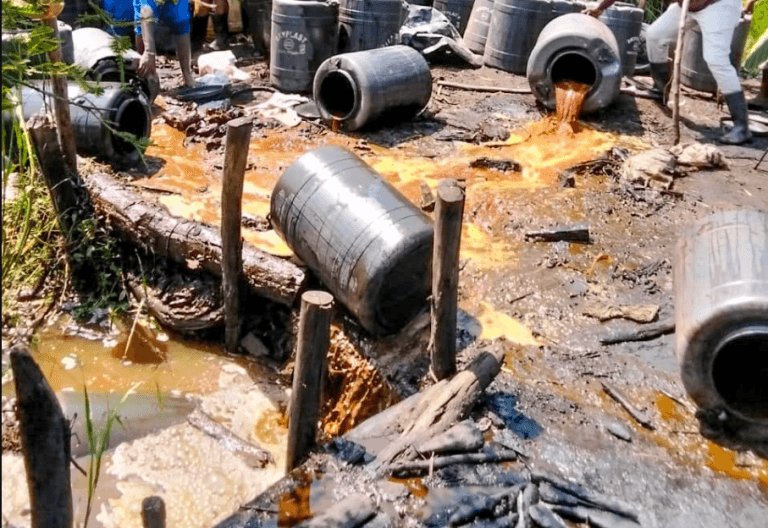We're loading the full news article for you. This includes the article content, images, author information, and related articles.
Homa Bay County is experiencing a heightened police operation against illegal alcohol production, aiming to curb the proliferation of harmful homemade brews. The crackdown follows a multi-agency raid in the Maguti area, signalling a renewed government focus on public health and safety.

Police in Homa Bay County have intensified their efforts to combat the production and sale of illicit alcohol, following a significant raid on Thursday, October 2, 2025. The operation, conducted by officers from Kendubay Police Station and National Government Administration Officers (NGAO), targeted clandestine brewing sites in the Maguti area, situated along the shores of Lake Victoria.
The National Police Service (NPS) confirmed the multi-agency operation, stating its focus was on illicit brewing activities.
The crackdown comes amidst ongoing national concerns regarding the dangers of unregulated alcohol, which often contains harmful substances and contributes to public health crises. Previous government initiatives have sought to eradicate illicit brews, but their production and consumption remain a persistent challenge, particularly in rural areas. The Maguti area, known for its proximity to Lake Victoria, has historically presented challenges in monitoring and controlling such activities.
Kenyan law strictly prohibits the production, sale, and consumption of alcoholic beverages that do not meet regulatory standards set by agencies such as the Kenya Bureau of Standards (KEBS) and the Alcoholic Drinks Control Act. Enforcement efforts aim to uphold these regulations and protect citizens from the adverse effects of unregulated alcohol.
Key stakeholders in this ongoing issue include the National Police Service, National Government Administration Officers, local communities affected by illicit brew consumption, public health officials, and licensed alcohol manufacturers. Community leaders and local administrators play a crucial role in providing intelligence and supporting law enforcement operations.
While the crackdown aims to safeguard public health, potential risks include displacement of illicit brewing operations to other areas, resistance from those involved in the trade, and the need for sustained enforcement to prevent a resurgence. Long-term implications could include improved public health outcomes and reduced social costs associated with alcohol abuse if the operations prove successful and sustainable.
The full extent of the illicit brewing network in Homa Bay County remains largely unknown. Details regarding the quantity of illicit brews seized, arrests made during the operation, and specific types of harmful substances found in the confiscated alcohol were not immediately available. The long-term impact on public health and the local economy also remains to be seen.
Observers will be watching for follow-up operations, the prosecution of individuals involved in illicit brewing, and any new policy directives from the government to address the root causes of illegal alcohol production and consumption. The effectiveness of community engagement in sustaining these efforts will also be a key factor.
Similar crackdowns on illicit brews have been reported across various counties in Kenya in recent years, highlighting a nationwide challenge. The government has consistently reiterated its commitment to eradicating the trade, often linking it to broader efforts to enhance security and public welfare.
Keep the conversation in one place—threads here stay linked to the story and in the forums.
Sign in to start a discussion
Start a conversation about this story and keep it linked here.
Other hot threads
E-sports and Gaming Community in Kenya
Active 9 months ago
The Role of Technology in Modern Agriculture (AgriTech)
Active 9 months ago
Popular Recreational Activities Across Counties
Active 9 months ago
Investing in Youth Sports Development Programs
Active 9 months ago